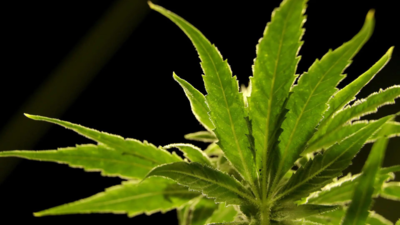
Representative Image (Picture credit: AP)
Across the United States,
marijuana use
has become more widespread due to increasing legalisation. Healthcare professionals are witnessing a troubling rise in cannabis-related health issues, reported the New York Times.
Despite the widespread use of marijuana for both medical and recreational purposes, millions of Americans, particularly chronic users, are suffering from serious health consequences.
In midcoast Maine, a paediatrician reports seeing teenagers consuming cannabis throughout the day, while psychiatrists from Washington to West Virginia treat patients experiencing severe delusions, paranoia, and psychosis triggered by the drug.
Moreover, emergency rooms are dealing with a surge in cases of
cannabinoid hyperemesis syndrome
(CHS), a condition that causes intense vomiting, nausea, and pain, leading to serious complications like dehydration and kidney failure.
CHS was first documented in 2004. It is especially concerning, as it can lead to severe health complications, including seizures and even death. Researchers estimate that nearly a third of near-daily cannabis users in the US may exhibit symptoms of this syndrome.
THC, the
psychoactive compound
is what causes the high when using marijuana. When individuals describe a specific type of cannabis as potent, it probably contains a high level of THC.
The increase in
THC levels
over time has likely contributed to the rise in these cases; while cannabis in the 1990s contained about 5 per cent THC, modern products like vape pens and edibles can reach THC levels as high as 99 per cent.
Gaps in state regulations, insufficient public health messaging and federal restrictions on research have left consumers and medical professionals unaware of the risks. A common misconception is that cannabis use is not addictive, yet studies show that around 18 million users over the age of 18 report symptoms of
cannabis use disorder
, according to a Columbia University public health researcher.
Doctors are also seeing an increase in
cannabis-induced psychosis
, which can last from a few hours to several months.
Additionally, chronic psychotic disorders, including schizophrenia, are becoming more prevalent, with cannabis often cited as a contributing factor. As marijuana use continues to rise, so do the harmful effects that healthcare systems across the country are grappling with.

 1 month ago
12
1 month ago
12










 English (US) ·
English (US) ·